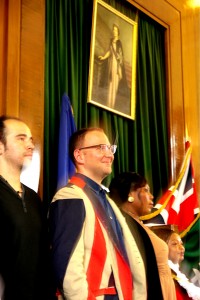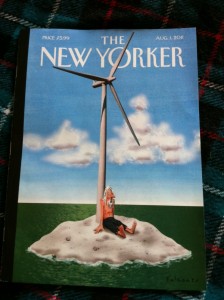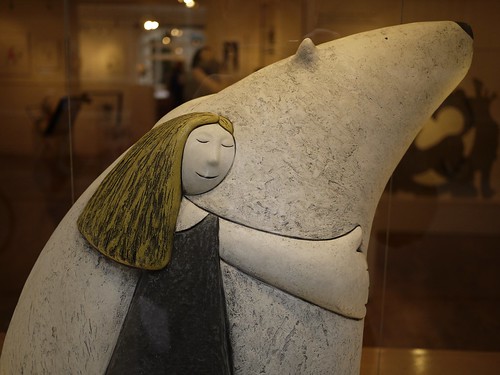This was the term coined by Gavin Essler Esler on Newsnight last night as he struggled to comprehend the mayhem in London. What’s interesting about the media coverage — and the public utterances of politicians as well as members of the public who have been interviewed by reporters — is its demonstration of how anger disables rationality. At the moment, to even attempt to argue that this “mindless” violence takes place in a wider context is seen as tantamount to condoning the madness.
Nevertheless, here goes.
1. The looting, mayhem and arson that’s gone on is just that. It doesn’t have any political motive or justification. Some of it is hard-headed, organised theft (for example, the looting in Birmingham). We shall probably see evidence of this emerging as some looters are caught and prosecuted, because they are not people from the area where they’ve been apprehended, but incomers from outside the area who have come looking for stuff to steal.
2. But mostly what’s gone on looks like vandalism on an extreme scale — chiefly because it involves youths trashing their own neighbourhoods. Vandalism is always puzzling because it seems motiveless. But it’s socially determined, nevertheless, in the sense that it occurs only in certain contexts. (Which is why, for example, one sees so much of it in Britain and Ireland and so little in some other societies.) In Britain, vandalism is a sign that kids feel no sense of responsibility towards their environment, which in turn reflects a sense of alienation from it. The environment is not something they value, because their perception is that they get very little from it. So no matter how “mindless” their behaviour appears to be, it takes place in a context. And that context is shaped by economic and social conditions.
3. Most of what passes for “analysis” in the mass media can’t seem to grasp the point that behaviour is a multi-causal phenomenon. That’s why it’s idiotic to look for the thing that is “causing” looters to loot. There are lots of forces at work — a system of ’causes’, if you like, and the outcome at any given time is the resultant of those causes at that time.
Larry Lessig pointed out many years ago that behaviour is determined by the interaction of several things — norms, laws, markets and architecture. Norms are socially determined; laws are framed by legislatures and implemented (or not) by security forces; markets have their own impersonal logic, and are often skewed by cartels and monopolies; architecture is determined by planners and developers. Young males growing up in the poorer parts of British cities have been affected by all three: social norms that are normally shaped by regular employment, education and stable family life are warped by poverty, crime and deprivation; the law is implemented in a discriminatory way (as shown, for example, in the way young blacks are regularly singled out by the Met for stop and search); the job-market is effectively closed to thsm; and the architecture of housing estates and run-down streets is ugly, alienating, dispiriting and intimidating to a degree rarely appreciated by the middle-classes, who never visit these places.
4. The spread of rioting from borough to borough and from city to city is clearly viral. The mass media are busy blaming “social media” for this, but in fact the ‘virus’ could just as plausibly have been spread by television images (as it was, for example, in the Watts riots in LA in 1965.
Either way, it’s just a contemporary manifestation of an old phenomenon. It reminds me of the famous psychological experiment in which two identical cars were abandoned, one on a street in Palo Alto, the other in a downmarket part of New York. The New York car was vandalised and stripped instantly, but the one in Palo Alto remained untouched for a week. Then the experimenters smashed its windscreen — with the result that the vehicle was comprehensively trashed in a day. In other words, in normal circumstances, the behavioural barrier to smashing a shop window is quite high. But once one shop has been violated, then the barrier is immediately lowered. When a dozen shops have been done, then effectively all restraints vanish.
And — please note — this is not a justification for the smashing of shop-windows but a plea for a serious attempt to understand what underpins the current crisis. If we don’t learn from it then we’re screwed.
5. Finally, there’s a stink of hypocrisy in all this. Our politicians are all incensed and enraged over the torching of cars and buildings and the looting of a smallish number of shops. But they passively tolerated the looting of our entire economy by bankers — who instead of being made to feel “the full weight of the law” (to coin Boris Johnson’s phrase about the looters) have been allowed to award themselves £14 billion in bonuses this year. It makes one sick.





